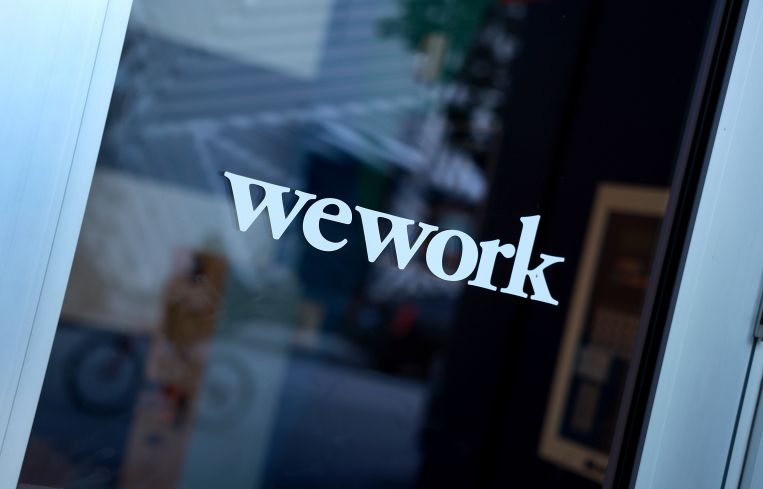WeWork’s Credit Rating ‘Tantamount to a Default,’ S&P Says
By Mark Hallum May 3, 2023 12:06 pm
reprints
WeWork’s struggle to get its debt in order and remain traded on the New York Stock Exchange is reflecting poorly on its already ailing credit rating.
Credit rating agency S&P Global Ratings previously gave WeWork a CC rating, which meant default was a near certainty, but took action to downgrade the company to an SD rating for firms that are in “selective default.”
Despite WeWork’s restructuring goals, S&P decided to downgrade its rating after an announcement Tuesday that WeWork was asking investors to approve a reverse stock split, essentially consolidating outstanding shares to raise its value on the trading floor and remain on the NYSE, The Real Deal first reported. But the downgrade was not necessarily a result of the stock split decision as S&P had been mulling taking action since at least March.
“We view these transactions as distressed and tantamount to a default because they resulted in lenders receiving less than originally promised,” the credit rating agency said in a press release.
WeWork did not immediately respond to a request for comment.
The coworking giant was told by the NYSE in late April that it could be exiled to the realm of penny stocks and kicked off the stock exchange after trading below $1 per share for more than a month.
S&P also downgraded WeWork’s rating on 7.875 percent of its senior unsecured notes due in 2025 to D from CC, meaning it’s already in default.
WeWork has spent the first few months of 2023 making big moves to secure its future with uncertain results.
In March, the company was looking to tap additional funding from investors to restructure and pay off about $3 billion in debt from SoftBank which would carry it a few more years, with Yardi being one prospective supporter.
The wind was simply not blowing in WeWork’s favor in the fourth quarter of 2022. The company made about $848 million in revenue, an increase of 3.6 percent from the previous quarter but less than the $859 million predicted by analysts, Commercial Observer previously reported. The company then laid off about 300 employees in January.
WeWork isn’t the only company to go public through the previously ballyhooed special purpose acquisition merger process to be threatened with being delisted. Short-term lodging company Sonder and vacation rental property manager Vacasa both received notices recently about potentially losing their place on Nasdaq after their stocks traded below $1 for more than a month.
Mark Hallum can be reached at mhallum@commercialobserver.com.
Update: a previous version of this story stated the Wednesday’s downgrade was a direct result of WeWork’s decision to initiate a stock split, but has been corrected to show that S&P’s determination about its credit rating had been in the works previously.



